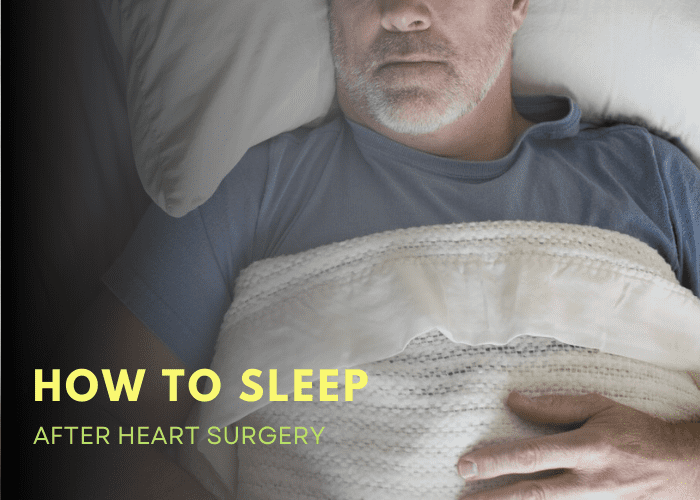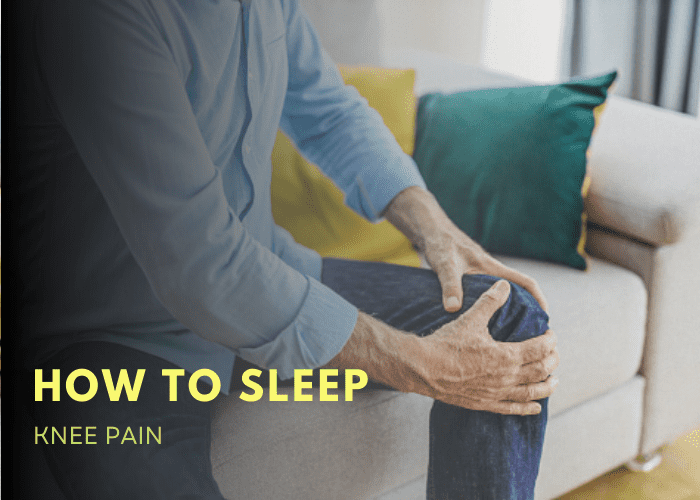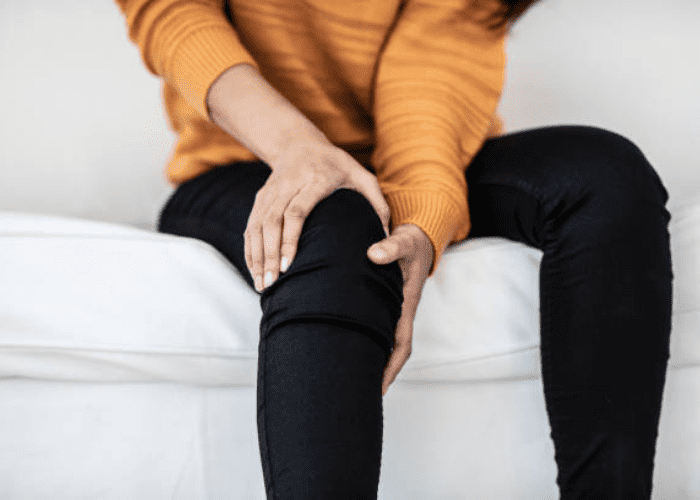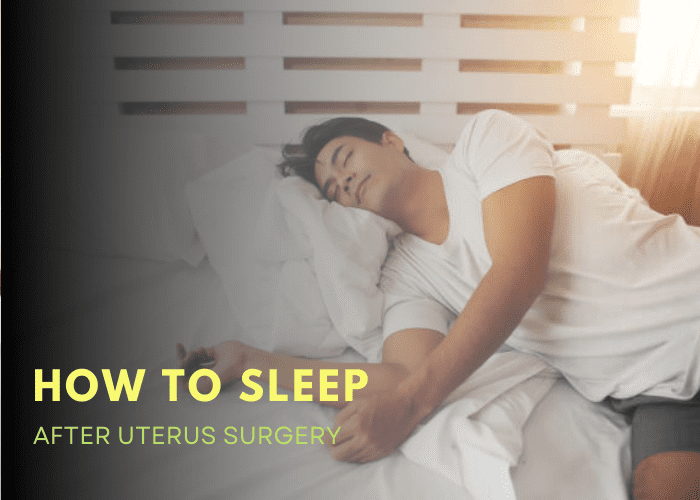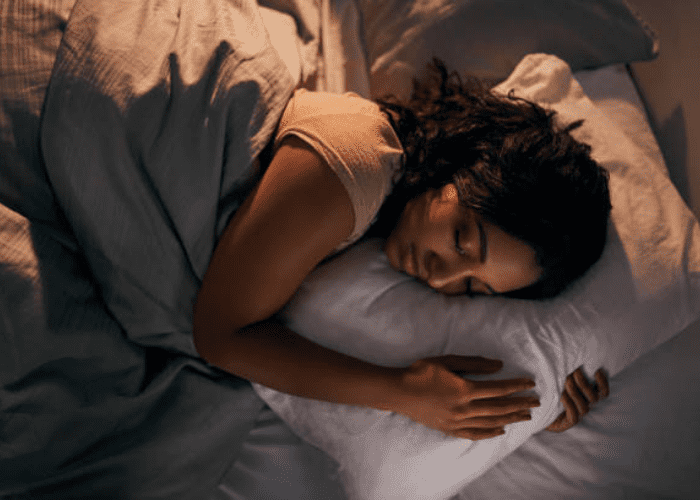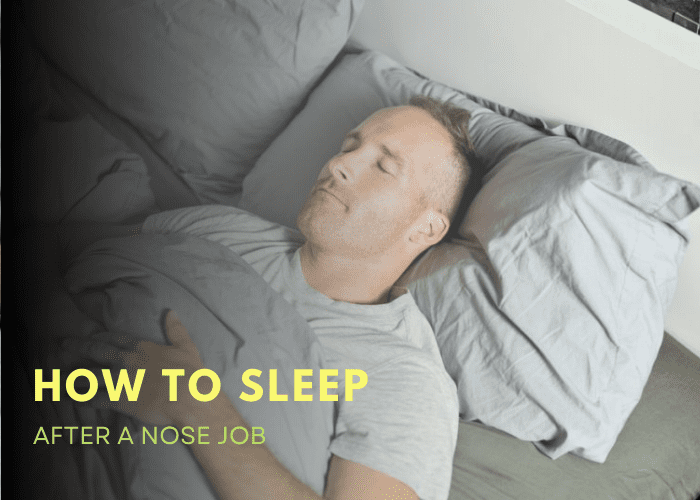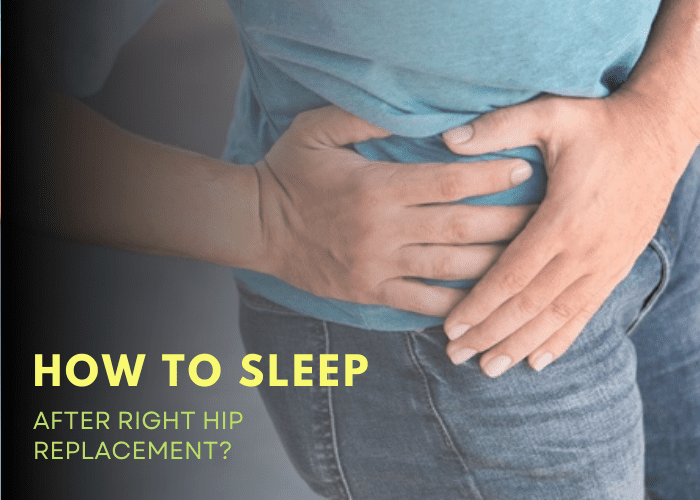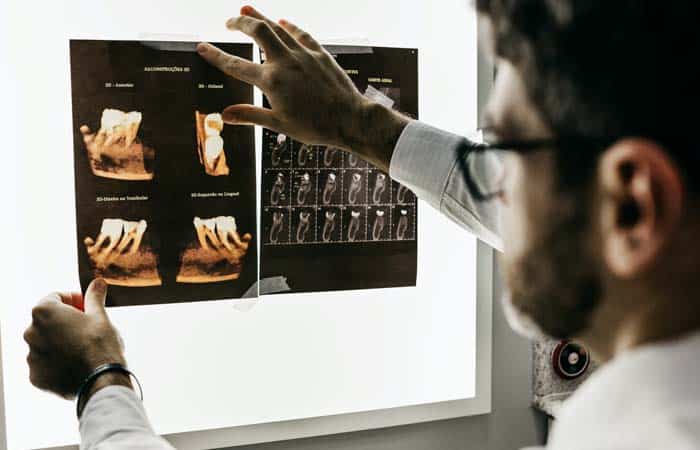What are the main concerns regarding sleep after heart surgery? Will you be confined to sleeping on your back for weeks on end?
You can sleep in any comfortable position once you arrive home after heart surgery. The incision wound will be stapled securely. Your sleeping position will not affect the wound site. However, sleeping on your back for weeks makes sense if you find this position comfortable.
It is normal to experience difficulty sleeping after heart surgery. Here are a few strategies that may help you get a better night’s sleep:
- Follow your healthcare provider’s instructions: Your provider may give you specific instructions on how to care for yourself after surgery, including recommendations for sleep. Follow these instructions closely.
- Take your medications as directed: Some medications, such as painkillers, can interfere with sleep. Talk to your provider about any concerns you have with your medications and their potential impact on your sleep.
- Create a comfortable sleep environment: A cool and dark room, a comfortable bed, and minimal noise can all help you get a better night’s sleep.
- Engage in relaxation techniques: Deep breathing, progressive muscle relaxation, or mindfulness meditation may help you relax and fall asleep more easily.
- Avoid screens before bed: The blue light emitted by screens can disrupt your natural sleep-wake cycle, making it harder to fall asleep. Avoid screens for at least an hour before bed.
- Consider talking to a healthcare provider: If you are having persistent difficulty sleeping after heart surgery, a healthcare provider may be able to offer additional guidance and support.
What sleeping position after heart surgery?
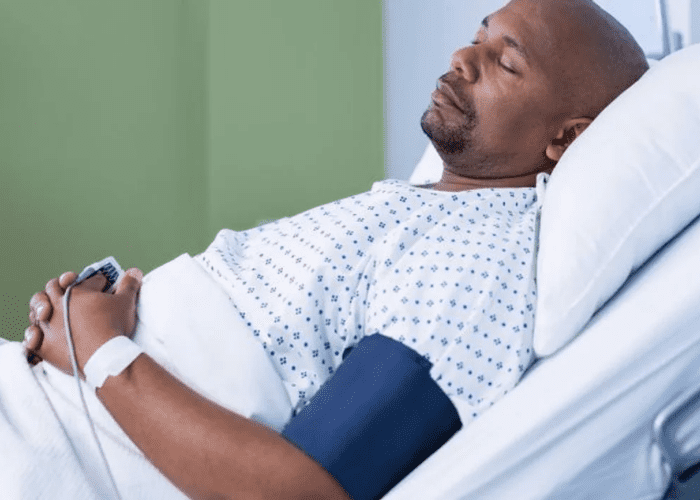
A position that you feel comfortable with will be the best position for you. It makes sense to sleep on your back when you return home from heart surgery.
Some of you may even prefer to sit in a recliner and sleep in a slightly elevated position. If this position is comfortable for you, then go ahead.
Sleeping on your side is permitted if you find it comfortable, there are no real restrictions, and there is no need to learn any special techniques to learn how to sleep after heart surgery.
Your chest has been securely fixed together, and the incision may look large but rest assured the surgical team have fixed your chest robustly.
Will sleeping on your side cause pain? It may cause some aching, but the pain is managed extremely well after heart surgery. During surgery, your breastbone or sternum is injected with a local anaesthetic lasting around three days.
The long last local anaesthetic helps to control the pain postoperatively. Heart patients rarely are sent home with pain management.
How about sleeping on your stomach? It’s not a great idea. If stomach sleeping is your preferred sleeping option, you should avoid this sleeping technique for a couple of months.
Sleeping on your stomach or chest after heart surgery will put additional pressure on the wound site and sternum.
If you move around a lot through the night when you are sleeping, you will need to know how to move. Rolling is the best method of changing position in bed. Avoid twisting your torso if possible, it’s not dangerous, but it prevents pain.
Frequently after major surgery, your torso moving causes the most anxiety. However, with pillows to prop you up and give extra comfort, there should be no need for concern.
Roll like a log, and you will be fine, it sounds easy and takes a little getting used to, but it can be done easily once you find the mechanism to initiate the move.
How do you sleep after open-heart surgery?
Are there any special ways of how to sleep after open-heart surgery? Not really, you can pretty much sleep in a position that you feel comfortable with, but most open-heart patients tend to choose back sleeping in a slightly elevated position.
A vein may have been taken from your leg to graft during the open-heart surgery. The incision on your leg is reportedly the most pain you will experience after open-heart surgery, which is a testament to how far medicine has come.
It may help you to sleep with a pillow under your ankles to keep your legs elevated. This will help to reduce any swelling you may experience around the incision.
It’s quite normal not to sleep well after open-heart surgery. Don’t stress, it’s part psychological. You have undergone major surgery.
As your strength starts to return to normal levels, you will take fewer naps during the day; fewer naps should see an increase in rest through the night.
Sleep plays a major role in how we heal, directly correlating to heart health. A healthy number of hours to sleep is 7 hours each night.
Set yourself up for healthy sleep, ditch the smartphone and laptop at your regular bedtime, keep your room cool and dark to induce sleep.
Your diet is likely to be healthy, but coffee is a big no and caffeine drinks in general. Don’t eat late in the evening, so you have a full belly around the time you sleep.
Keep your evening fluids intake to a minimum to prevent waking to use the bathroom through the night.
Is heart surgery and pacemaker surgery the same?
Heart surgery and pacemaker surgery are two different types of medical procedures. Heart surgery involves a range of procedures that are performed to treat various conditions affecting the heart. These procedures may include coronary artery bypass surgery, heart valve surgery, and surgery to repair or remove damaged heart tissue.
Pacemaker surgery, on the other hand, involves the implantation of a device called a pacemaker. A pacemaker is a small electronic device that is placed under the skin, usually in the chest area, to help regulate the heart’s rhythm. Pacemaker surgery is typically performed to treat arrhythmias, which are abnormal heart rhythms that can cause symptoms such as palpitations, dizziness, and fainting.
In summary, heart surgery and pacemaker surgery are two different types of procedures that are used to treat different conditions affecting the heart.
How to sleep after pacemaker surgery
It is normal to experience some discomfort and difficulty sleeping after pacemaker surgery. Here are a few strategies that may help:
- Follow your healthcare provider’s instructions: Your provider will give you specific instructions on how to care for yourself after surgery, including recommendations for sleep. Follow these instructions closely.
- Take your medications as directed: Some medications, such as painkillers, can interfere with sleep. Talk to your provider about any concerns you have with your medications and their potential impact on your sleep.
- Create a comfortable sleep environment: A cool and dark room, a comfortable bed, and minimal noise can all help you get a better night’s sleep.
- Engage in relaxation techniques: Deep breathing, progressive muscle relaxation, or mindfulness meditation may help you relax and fall asleep more easily.
- Avoid screens before bed: The blue light emitted by screens can disrupt your natural sleep-wake cycle, making it harder to fall asleep. Avoid screens for at least an hour before bed.
- Consider talking to a healthcare provider: If you are having persistent difficulty sleeping after pacemaker surgery, a healthcare provider may be able to offer additional guidance and support.
Can I sleep on my side after pacemaker surgery?
Yes, there should not be a problem sleeping on your side or in your preferred sleeping position. Your pacemaker is tough and won’t be damaged by your sleeping position.
There is no need to find a special way of how to sleep after pacemaker surgery, but some patients choose to sleep on their right side due to most pacemakers being fitted on the left-hand side.
Does a pacemaker affect your sleep quality? It’s a mixed bag report, and some say yes, and others say not. You need to understand that you were possibly feeling sleepy throughout the day before your pacemaker was fitted.
With the pacemaker fitted, your heart is now beating at the correct frequency, which should increase your energy levels.
If you are experiencing sleeping difficulties, take matters into your own hands and cut out coffee, tea and any other caffeine and sugar drinks after midday.
Avoid eating late in the evening and choose your evening meals with sleep in mind. Refrain from overeating and eating spicy foods. Eat healthy and small portions sizes for your evening meal.
Stick to a sleep routine; sleep at the same time every night of the week.
How to sleep after angioplasty
You will need to spend a day or two in bed to get over angioplasty but other than that there are no directives of how to sleep after angioplasty.
You may start to feel much better after the procedure, but there is a recovery period of around two weeks, depending on what your doctor has told you.
Can you sleep in any position? Yes, pretty much sleep the same way as you normally do. The restrictions after angioplasty are short term if the procedure was scheduled and should be adhered to.
If you have an angioplasty due to a heart attack, you could be off work for several weeks until you’re fully recovered.

